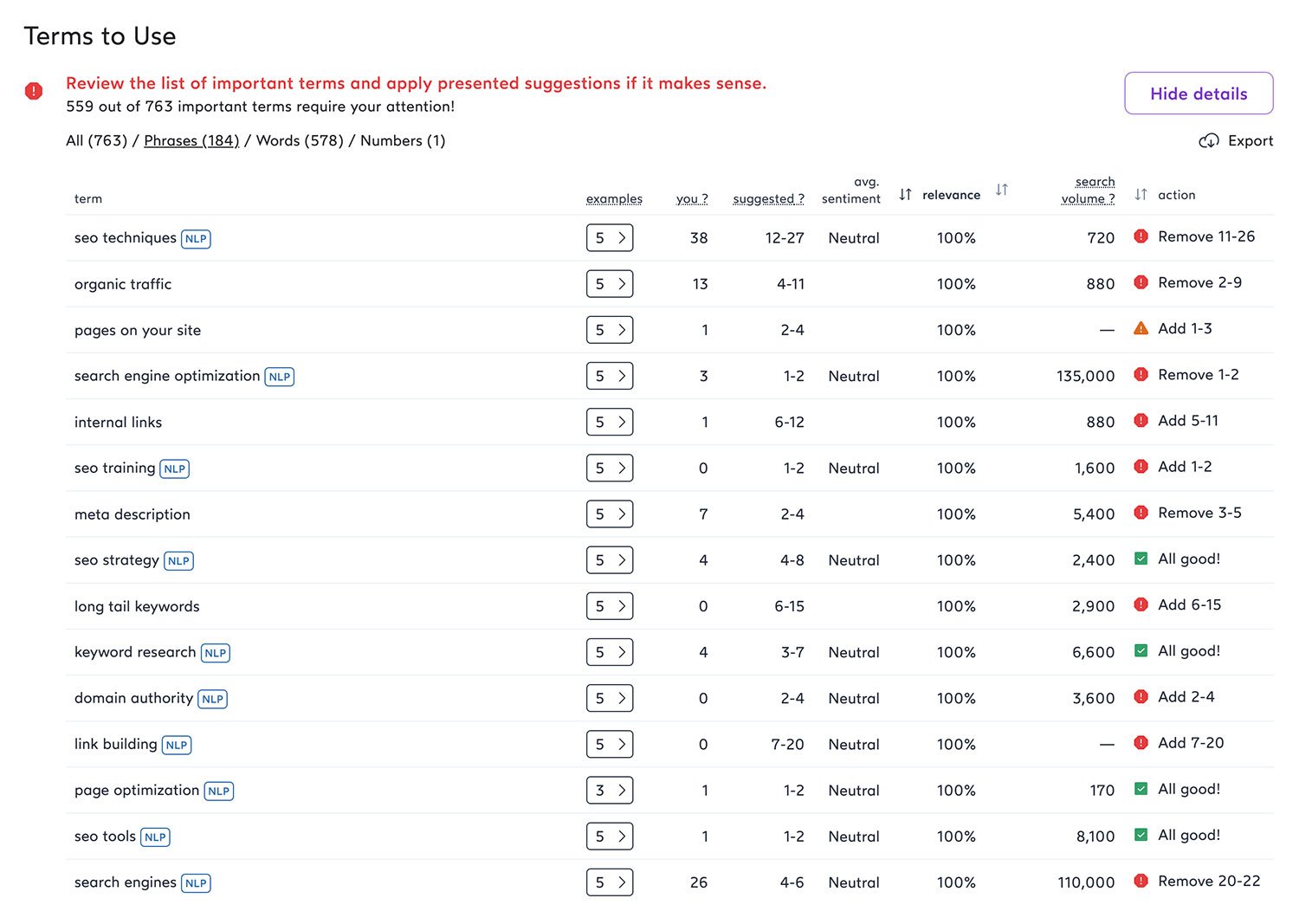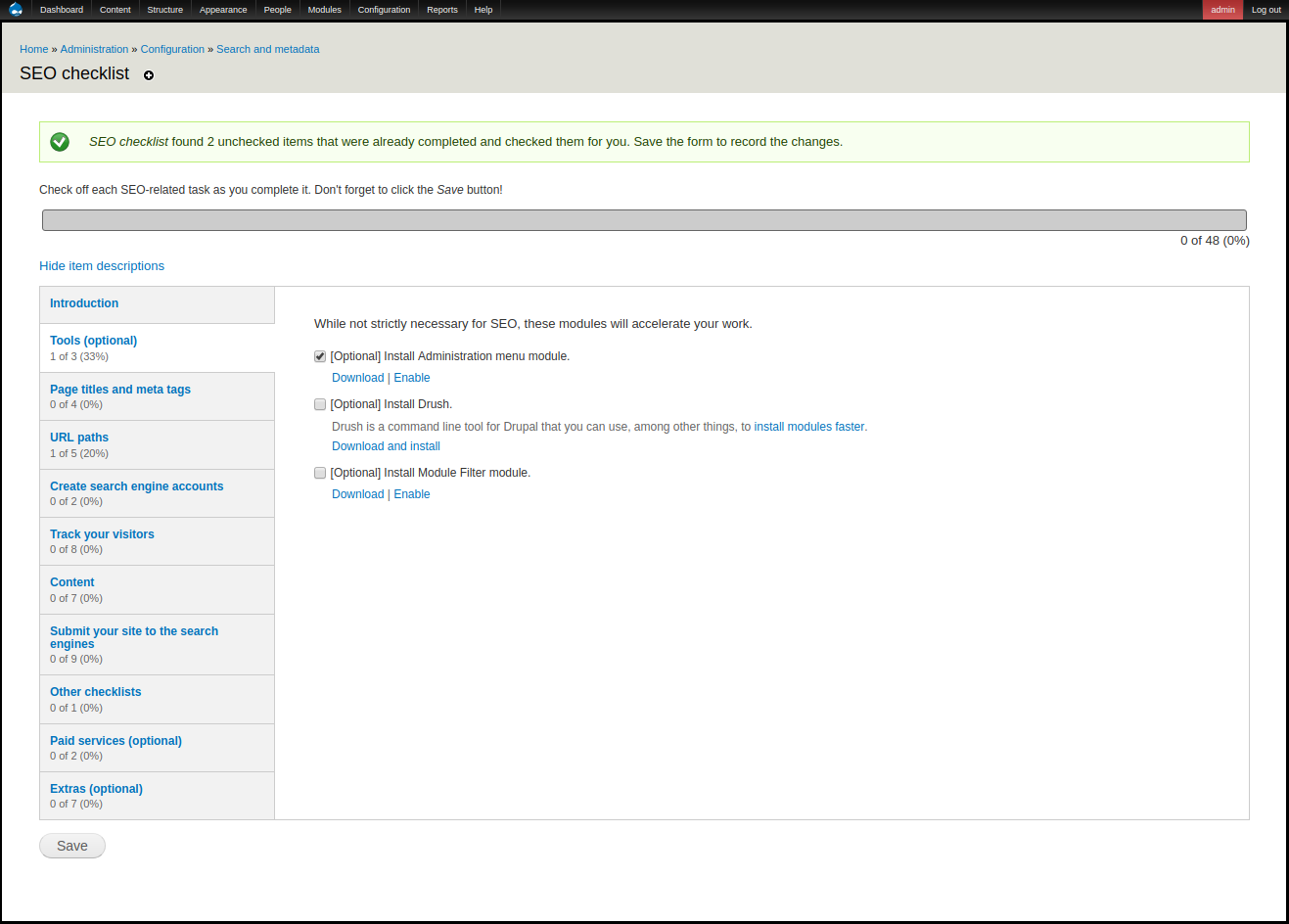Website analysis tools play a crucial role in digital success. They help businesses understand their online presence.
As we approach 2025, the digital landscape continues to evolve. New trends and technologies emerge that make website analysis more important than ever. Businesses need to know how their websites perform. They must understand user behavior and engagement. The right tools can provide insights into traffic, SEO, and overall site health.
This knowledge helps in making informed decisions. Choosing the best website analysis tools can enhance a company’s online strategy. In this post, we will explore the top website analysis tools for 2025. Discover how these tools can help you improve your website and achieve your goals.
Emerging Trends In Website Analysis
Website analysis tools are essential for success in 2025. These tools help businesses understand their online presence. Emerging trends show that technology is changing how we analyze websites. Staying updated is important for effective strategies.
Ai And Machine Learning
AI and machine learning are becoming key parts of website analysis. These technologies help to collect data quickly and accurately. Here are some benefits of using AI:
- Improved accuracy: AI reduces human error in data analysis.
- Faster insights: Machine learning processes data much quicker.
- Predictive analytics: AI can forecast trends based on past data.
Many tools use AI to enhance website analysis. They can identify user behavior and preferences. Understanding these patterns helps businesses tailor their content. Here is a simple comparison of popular AI tools:
| Tool Name | Main Feature | Best For |
|---|---|---|
| Google Analytics | Advanced data reporting | All businesses |
| SEMrush | SEO insights | Marketers |
| Ahrefs | Link analysis | Webmasters |
Real-time Data Processing
Real-time data processing is another important trend. It allows businesses to see data as it happens. This immediacy helps in making quick decisions. Here are some advantages of real-time data:
- Immediate feedback: Know how users react to changes instantly.
- Better engagement: Respond to user actions in real time.
- Informed decisions: Use up-to-date information for strategy adjustments.
Many tools now offer real-time data analysis. This feature helps companies stay competitive. Here is a list of tools that provide real-time insights:
| Tool Name | Real-time Feature | Ideal Users |
|---|---|---|
| Mixpanel | User behavior tracking | Product teams |
| Kissmetrics | Customer journey tracking | Marketers |
| Heap | Automatic event tracking | Web developers |

Key Features To Look For
Website analysis tools are essential for understanding site performance. In 2025, choosing the right tools is more important than ever. Key features will help improve user experience and SEO optimization.
User Experience Insights
User experience insights focus on how visitors interact with a website. Understanding this can help improve site design and content. Important features to look for include:
- Heatmaps: Show where users click and scroll.
- User Session Recordings: Watch how users navigate the site.
- Feedback Tools: Collect visitor opinions and suggestions.
These insights can lead to better website decisions. They help identify problems that users face. A tool with strong user experience insights can:
- Increase user satisfaction.
- Reduce bounce rates.
- Boost conversion rates.
Overall, focusing on user experience helps in creating a user-friendly website. It is crucial for keeping visitors engaged and happy.
SEO Optimization Tools
SEO optimization tools help improve a website’s visibility in search engines. These tools offer features that enhance website performance. Key features to look for include:
- Keyword Research: Find the right keywords to target.
- On-Page Analysis: Check if pages follow SEO best practices.
- Site Audit: Identify technical issues on the site.
Using these tools can help rank higher in search results. A good SEO tool will provide:
| Feature | Benefit |
|---|---|
| Keyword Tracking | Monitor keyword performance over time. |
| Backlink Analysis | Understand link quality and quantity. |
| Competitor Analysis | Learn from competitors’ strategies. |
Investing in the right SEO tools is vital for success. They can help you stay ahead in a competitive online space.
Top Tools For 2025
Website analysis tools are important for 2025. They help users understand how their websites perform. These tools provide valuable insights. Knowing which tools to use is key. Here are some top tools for effective analysis.
Comparative Analysis
Comparing different website analysis tools can help find the best one. Here are some popular options:
- Google Analytics: Great for tracking website traffic.
- SEMrush: Useful for SEO and keyword research.
- Ahrefs: Excellent for backlink analysis.
- Moz Pro: Provides insights on search engine optimization.
Each tool has unique features. Below is a comparison table:
| Tool Name | Key Feature | Best For |
|---|---|---|
| Google Analytics | User behavior tracking | Traffic analysis |
| SEMrush | Keyword tracking | SEO strategies |
| Ahrefs | Link analysis | Backlink research |
| Moz Pro | SEO tools | Search rankings |
Choosing the right tool depends on needs. Each tool offers specific insights to improve your website.
Specialized Solutions
Some website analysis tools focus on specific areas. These specialized solutions can provide deeper insights. Here are a few examples:
- Hotjar: Great for understanding user behavior with heatmaps.
- Crazy Egg: Offers detailed visual data on user interactions.
- GTmetrix: Focuses on website speed and performance metrics.
These tools serve different purposes:
| Tool Name | Specialization | Use Case |
|---|---|---|
| Hotjar | User behavior visualization | Heatmaps and recordings |
| Crazy Egg | Visual data analysis | Understanding clicks |
| GTmetrix | Performance analysis | Speed testing |
Specialized tools can help with specific aspects of your website. They provide targeted insights for improvement.

Integration With Other Platforms
Website analysis tools help businesses understand their online presence. In 2025, integration with other platforms is very important. This makes it easier to gather and analyze data. Using these tools with other systems can enhance insights and improve strategies.
Crm Systems
CRM systems are vital for managing customer relationships. Integrating website analysis tools with CRM can provide many benefits:
- Better Customer Insights: Understand customer behavior and preferences.
- Improved Communication: Send targeted messages to the right customers.
- Data Synchronization: Keep customer data updated across platforms.
Here is a simple table showing popular CRM systems and their features:
| CRM System | Key Features |
|---|---|
| Salesforce | Customizable dashboards, AI insights, mobile access |
| HubSpot | Email marketing, lead tracking, analytics |
| Zoho CRM | Automation, reporting, multi-channel support |
These features help businesses make informed decisions. The integration leads to better customer experiences and higher satisfaction.
Social Media Analytics
Social media analytics is essential for understanding online engagement. Integrating these tools with website analysis provides valuable insights:
- Track Engagement: See how users interact with content.
- Measure Campaign Success: Understand what works and what doesn’t.
- Identify Trends: Spot popular topics and adjust strategies.
Many tools can help analyze social media data:
| Tool Name | Features |
|---|---|
| Google Analytics | Website traffic, social media referrals, user behavior |
| Hootsuite | Social media scheduling, engagement metrics, reporting |
| Buffer | Post scheduling, analytics, team collaboration |
Using these tools together helps businesses improve their online presence. Integrating social media data with website analysis creates a clearer picture of success.
Data Privacy And Compliance
Website analysis tools are essential for improving online presence. In 2025, data privacy and compliance will be more important than ever. Businesses must understand regulations like GDPR. They must also manage user consent effectively. This ensures trust and safety for users.
Gdpr Considerations
The General Data Protection Regulation (GDPR) is a key law in Europe. It protects personal data of individuals. Companies must follow strict rules to avoid fines.
Here are important GDPR considerations:
- Data Collection: Limit the data you collect. Collect only what is necessary.
- Data Processing: Process data fairly and transparently. Users should know how their data is used.
- Data Access: Users have the right to access their data. They can request copies of their information.
- Data Deletion: Users can ask to delete their data. This is known as the right to be forgotten.
Companies should also keep records of data processing activities. This helps prove compliance. Below is a simple table showing key GDPR points.
| GDPR Aspect | Details |
|---|---|
| Personal Data | Any information that can identify a person. |
| Consent | Must be clear, informed, and unambiguous. |
| Data Breaches | Must be reported within 72 hours. |
User Consent Management
User consent management is crucial for compliance. It involves obtaining permission before collecting data. Clear consent helps build trust with users.
Effective user consent management includes:
- Clear Language: Use simple words to explain consent. Avoid legal jargon.
- Easy Opt-In: Make it easy for users to agree. Provide clear options.
- Easy Opt-Out: Users should easily withdraw consent. This shows respect for their choices.
- Record Keeping: Keep records of user consent. This helps in case of audits.
Tools that help manage user consent can simplify this process. They track when users give permission. These tools also ensure compliance with regulations like GDPR. Understanding and implementing these practices is vital.
Cost Vs. Value
Website analysis tools help improve site performance and user experience. In 2025, many options are available. Choosing the right tools means looking at their cost and value. Some tools are free, while others require payment. Understanding what each offers is important for making the best choice.
Free Tools
Free website analysis tools are a great way to start. They offer basic features to help you understand your website’s performance. Here are some common free tools:
- Google Analytics: Tracks website traffic and user behavior.
- Google Search Console: Helps monitor website presence in search results.
- Ubersuggest: Provides keyword suggestions and SEO analysis.
- GTmetrix: Analyzes page speed and performance metrics.
Free tools can provide valuable insights, but they may have limitations. Often, they do not offer advanced features. Below is a table comparing some free tools:
| Tool | Main Features | Limitations |
|---|---|---|
| Google Analytics | Traffic tracking, user behavior | No real-time analysis |
| Google Search Console | Search performance, indexing | Limited to Google search data |
| Ubersuggest | Keyword research, SEO suggestions | Limited data on free plan |
| GTmetrix | Page speed analysis | Basic features only |
Premium Services
Premium website analysis services offer more features than free tools. These tools provide advanced insights and better support. Businesses often choose premium options for deeper analysis.
- SEMrush: Comprehensive SEO tools, including keyword tracking and competitor analysis.
- Ahrefs: Offers in-depth backlink analysis and site audits.
- Moz Pro: Provides keyword research and site optimization tools.
- SpyFu: Focuses on competitor keyword research and PPC analysis.
Premium services come with a cost, but they can save time and improve results. Here’s a comparison of some premium services:
| Service | Main Features | Price Range |
|---|---|---|
| SEMrush | SEO tools, site audits, competitor analysis | $119.95/month |
| Ahrefs | Backlink analysis, keyword research | $99/month |
| Moz Pro | Keyword tracking, site optimization | $99/month |
| SpyFu | Competitor research, PPC analysis | $39/month |
User-friendly Interfaces
Website analysis tools are important for success in 2025. User-friendly interfaces help users understand data easily. This allows for better decision-making. Simple designs make it easier to navigate tools. Users can focus on insights rather than struggling with complex layouts.
Dashboard Customization
Dashboard customization is a key feature in website analysis tools. Users need dashboards that fit their needs. Custom dashboards allow users to see important metrics at a glance. This saves time and improves efficiency.
- Drag-and-drop functionality: Move widgets around easily.
- Color schemes: Choose colors that suit your brand.
- Widget options: Select from different types of data displays.
- Save settings: Keep your custom layout for future use.
Many tools now offer templates as well. These templates help users get started quickly. Users can modify them to fit their needs.
| Feature | Benefit |
|---|---|
| Custom Widgets | Display only the data you need. |
| Real-Time Updates | See data changes as they happen. |
| Export Options | Share your dashboard easily. |
Mobile Access
Mobile access is essential for website analysis tools in 2025. Users need to check data on the go. Mobile-friendly designs make this possible. Responsive layouts fit all screen sizes.
Accessing tools from smartphones and tablets is common. Users can monitor their websites anytime, anywhere. Many tools now offer mobile apps for ease of use.
- Push notifications: Receive alerts for important updates.
- Offline access: View data without internet.
- Simple navigation: Easy to find features on small screens.
Mobile access ensures users stay informed. Decisions can be made quickly, even while traveling. This flexibility is crucial in today’s fast-paced world.

Future Of Website Analysis
Website analysis tools will change in 2025. These tools help businesses understand their online presence. They provide insights into user behavior and website performance. The future of website analysis focuses on advanced features. One important feature is predictive analytics.
Predictive Analytics
Predictive analytics uses data to forecast future trends. It helps businesses make better decisions. This type of analysis looks at past data. It finds patterns and predicts future outcomes. Here are some key points about predictive analytics:
- Data Collection: Gather data from various sources.
- Data Analysis: Analyze data to find trends.
- Forecasting: Predict future user behavior.
- Improved Strategy: Create better marketing strategies.
Predictive analytics can be very useful. It helps in understanding customer needs. Businesses can tailor their services based on predictions. This can lead to higher customer satisfaction. Below is a simple table showing benefits of predictive analytics:
| Benefit | Description |
|---|---|
| Increased Efficiency | Focus on what works best for users. |
| Cost Savings | Reduce unnecessary spending on ineffective strategies. |
| Better User Experience | Improve services based on user predictions. |
Understanding predictive analytics is key. It provides a clear picture of what to expect. Businesses can adapt and grow in a changing market.
Frequently Asked Questions
What Are Website Analysis Tools?
Website analysis tools are software applications designed to evaluate the performance and effectiveness of websites. These tools provide insights into traffic, user behavior, SEO metrics, and technical issues. Using them helps website owners improve their online presence and optimize their sites for better user experience and search engine rankings.
How Do I Choose The Best Tool?
Choosing the best website analysis tool depends on your specific needs. Consider factors such as features, ease of use, pricing, and customer support. Look for tools that provide comprehensive analytics, actionable insights, and integration capabilities with other platforms. A trial version can help you evaluate its suitability for your business.
What Features Should I Look For?
When selecting a website analysis tool, prioritize features like traffic analysis, SEO performance tracking, and competitor benchmarking. Additionally, ensure the tool offers user behavior analytics, conversion tracking, and reporting capabilities. A user-friendly interface and customization options can also enhance your experience and effectiveness in leveraging the tool.
Are Free Tools Effective?
Free website analysis tools can be effective for basic insights. They often provide essential metrics like traffic statistics and basic SEO analysis. However, they may lack advanced features and detailed reports found in premium tools. For comprehensive analysis and professional needs, investing in a paid tool is recommended.
Completion
Choosing the right website analysis tools is essential. They help you understand your site’s performance. Use these tools to track traffic and improve user experience. Staying updated with trends is key. Focus on tools that fit your needs and budget.
Regular analysis leads to better results. Invest time in learning how to use them. A strong website enhances your online presence. Make informed decisions to grow your business. Start exploring these tools today and see the difference.
Your website deserves the best.




Leave a Reply